Balance Work & Life
Increased performance through healthy nutrition
Fit for your job through healthy nutrition
You know the situation: a hectic workday, long meetings, numerous business trips, constant work in front of the computer screen - and little time to think about a health-conscious diet.
Stress in everyday work and unhealthy eating habits are often reasons for an imbalanced metabolism and thus for overweight and illness. In addition, a health-conscious diet is the key to success. It increases your performance and gives you long-term energy and vitality.
What is your wellbeing action plan? And how can it be efficiently integrated into a hectic everyday professional life?
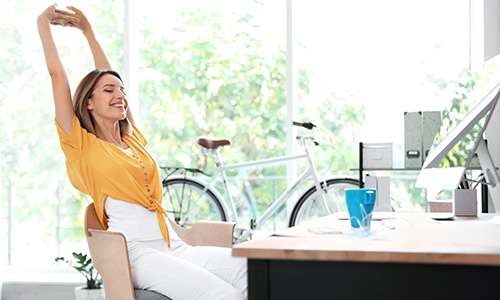
Efficient through everyday life - this is how it works
- Start the day with a nutritious breakfast full of energy.
- Avoid short-term "power boosters" such as coffee, energy drinks and cereal bars. Rather choose wholesome snacks, like fruit, vegetables, nuts or yogurt. Drink enough water to maintain your concentration.
- Avoid the fast food snack on your lunch break. With high-fat meals the performance low is pre-programmed. Choose dishes that provide you with a sustainable supply of nutrients and fibre.
- When you are on a business trip, wholegrain rye bread with cheese, raw vegetables and fruit is a simple but filling meal. This to-go meal can be easily prepared before hand.
- Consume your food consciously and not in a hectic pace while working or at your desk.
- Eventhough stress cannot always be avoided, be careful and mindful with yourself. Listen to your body. Frequent lack of strength, irritability, sleep disorders, nervousness and also physical complaints such as dizziness, circulatory problems, stomach problems or back pain are warning signs of long-term stress overload.
- Possible ways to achieve more peace and quiet can be walking, reading or exercise. But also relaxation methods such as autogenic training, meditation or progressive muscle relaxation help to reduce inner restlessness, tension or anxiety.
- Take short breaks - also in the office. For example open the window and deeply breath for a couple of minutes, or take a walk on your lunch break. Get moving with short stretching exercises at your workplace or take the stairs instead of using the elevator.
Take care - on the go
If you are a commuters or often on business trips - you are frequently "on the road" - for hours in your car or public transportation. Eating healthy despite the stress of constant travel is a challenge. The solution are lunch boxes. This makes it easy to take prepared complete meals with you.
Often there is not enough time for a relaxed meal, and the offers on the road are overpriced and unbalanced. Therefore we may quickly slip back into old behavior habits, eat to fast and mindlessly grab some fatty fast food. A nicer alternative: prepare some fresh and balanced food for your travels! Get a new beautiful lunch box or bag.
In Japan the bento box has a long tradition. Already 1,000 years ago bamboo tubes served warriors, field workers and fishermen as lunch boxes. Even today, the practical and elegant bento boxes are used by students and business people alike, so they can enjoy full healthy meals on the go.

Aesthetically designed and super practical - the Japanese lunch box
- In the bento box you can store different types of food, and seperate them with practical removable deviders - and thus individually compose your meal.
- There are no limits to creativity.
- There is even room for silverwear on the side of the box.
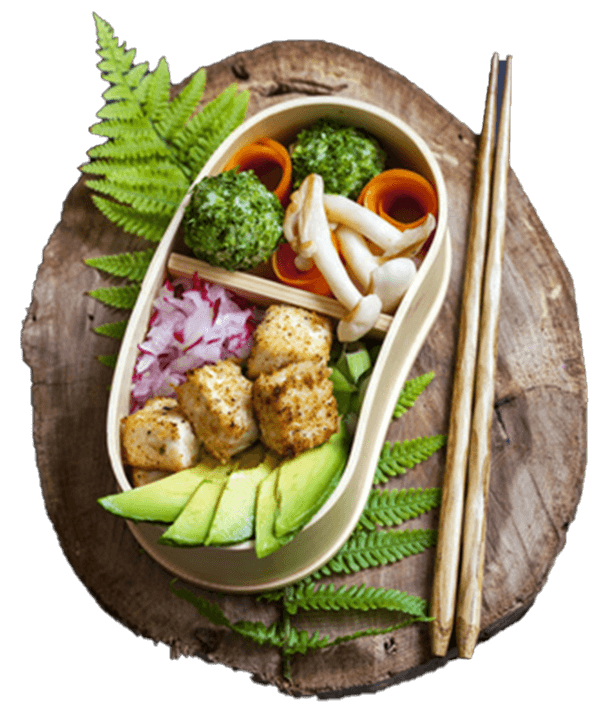
State of emergency - how to recognize stress
When you are constantly stressed, everything is over your head and there is no solution in sight. In the long run, the excessive demands can make you sick. What happens in the body? And what are typical warning signs?
Feeling over-strained, over-activated, restlessness, hectic or feeling threatened. Chronic stress has the organism on constant alert. An exhausting and in the long run also health-threatening condition.
The fact that stress can make you sick is now proven. When we are constantly under stress, many systems of the body are running at full speed (e.g. heart and circulation, hormone and nervous system), while others are shutting down (intestinal function). This is caused by the many stress hormones that reach the organs via the bloodstream.
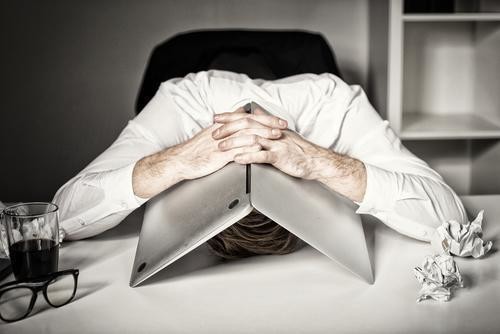
Typical ailments associated with stress
Stressed people often suffer from:
- gastrointestinal illnesses
- cardiovascular diseases (arteriosclerosis, heart attack, high blood pressure)
- headache and back pain (or tension)
- elevated blood sugar or cholesterol level
- depression and anxiety
- generally have a weakened immune system, which increases susceptibility to infections and cancer.
Therefore, it is important to perceive stress symptoms as warning signs.
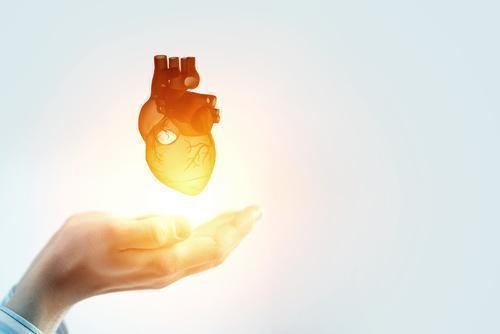
Possible signs of stress
On an intellectual level:
- negative thoughts like, "This is gonna go wrong anyway"
- or, "I can't do this."
- constant comparison with other
- lack of concentration
- forgetfullness
- blinker effect
- sensation of emptiness in the head
On a physical level:
- frequent fatigue, weakness, tiredness
- not being able to realx, feeling less and less rested
- insomnia
- dizziness, cardiovascular disorders, high blood pressure
- stomach and / or intestinal issues without organic cause
- back and / or heart pain
- sexual dysfunction
On a social scale:
- retreat to isolation
- no more time for yourself
- neglect of exercise, friends, family, holidays
- high caffeine consumption
- regular consumption of alcohol
- increased smoking
On an emotional level:
- frequent irritation, bad mood
- nervousness, tention
- anxiety
- general reduction of compassion and even insensitivity
- aggression and rage
- depression
Stress levels have been increased due to the global pandemic -
- listen to helpful hints!
Is there anyone you know finding themselves "eating everything in the house" by noon?
Could it be that we are eating our feelings: Stress, Boredom, Anger, Anxiety and more?
We call it Emotional Eating !
Watch this short video to check out some valuable tips to help all of us through these turbulent times.
Strategically managing stress
Unbalancing stress starts in the head. Why do you contribute to it - and what helps? With selective relaxation techniques you can bring balance and satisfaction back into your life.
Eliminating stress from your life is not the solution. There is also positive stress, where you - appropriately - react to threats and performance demands. The difference is that you then return to a calmer level. How high your level of negative stress depends largely on how you judge the situation and your strategies to cope with it. Stress is the result of your mental evaluation.
Once you are aware of how much of your stress level is caused by yourself, you can actively influence and change something positive.
Even short breaks can have a relaxing effect, e.g. walking, making music, dozing or reading, and (endurance) exercise. It is only important that you do not perceive the leisure activity as a "task" that needs to be done. Especially when we are presently running in over-strain mode, we tend to make everything else in our daily lives a stressor as well. Therefore, selective relaxation techniques are so recommendable. Following we introduce some of them to you.
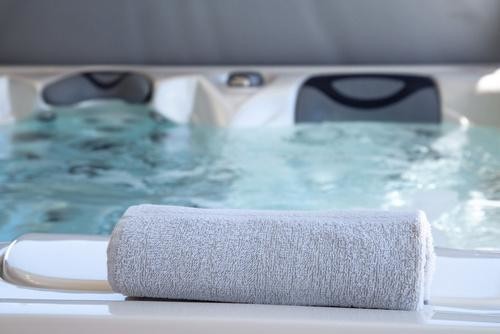
Relaxing techniques for daily life
Relaxation techniques have a targeted effect and are easy to apply. Step by step they help to reduce inner restlessness, tension or anxiety and consciously create relaxation.
Mindfulness Exercises: you are mindful when you are aware of all things in and around you in a value-free way. This increases your ability to consciously distance yourself from demands, e.g. politely saying "no" or postponing a task to another time. Mindfulness leads to more self-determination in life and thus, to less stress and feelings of helplessness. A recognized method is, for example, Mindfulness-Based Stress Reduction (MBSR), which was developed by the American molecular biologist Jon Kabat-Zinn. Although it is derived from Buddhism, it is detached from faith. For example, the focus is on breathing and on individual associated muscle movements, such as lifting and lowering the abdominal wall. Meditation as well helps you to become more mindful in everyday life.
Autogenic Training: in autogenic training, you relax your psyche and thus automatically your body. An instructor, a recording or you recite formulas and sentences that suggest certain sensations.
For example: "My right arm is heavy," or "My right arm is pleasantly warm". This is how you go step by step through your whole body.
With regular practice, the suggestions reach the unconscious, are converted into nerve impulses of the vegetative nervous system and influence bodily functions such as heartbeat, breathing, intestinal activity, blood flow to muscles and skin and the body's heat balance.
Progressive Muscle Relaxation: this method first relaxes the body and then the psyche. You go step by step through your body and specifically tense individual muscle areas, hold the tension for a few seconds, then let go with the exhalation, and then let the relaxation take effect for up to 60 seconds.
There are many other relaxation methods, for example:
- deep breathing therapie
- biofeedback
- Feldenkrais
- Yoga
- Qigong
Find out what suits you best - and then build an exercise into your daily routine.
Delicious and healthy food - also at work
Fast food in front of the screen tend to be a given during hectic workdays, leaving healthy meals and healthy eating habits on the sidelines. What alternatives are there? Fortunately, some! Here are some suggestions and ideas.
Who is not familiar with it? Reading the newspaper at breakfast, eating a quick snack while walking, or rushing to eat lunch in front of the screen - sometimes there is simply not enough time in everyday life for a healthy, conscious meal.
In the long run, however, such habits can be harmful. Scientists have shown that eating, exercise and stress behavior influence each other. How we eat and what we eat therefore has a major impact on the level of stress in our bodies. That is why we should get into the habit of healthy eating habits.
In stressful situation - the need of vitamins and minerals is high
When things have to be done quickly, we often resort to foods rich in sugar and fat, such as fast food, sandwiches or processed foods. Fatal, because at the same time we have an increased need for vital substances such as vitamins and minerals due to stress. This demand remains unsatisfied by unhealthy eating habits. That is why it is especially important at work to supply the body with healthy food that is rich in vitamins and minerals.

Tips for everyday health
- Ensure that you consume sufficient polyunsaturated fatty acids. Omega-3 fatty acids are found, e.g., in rapeseed, walnut, hemp and linseed oil, also in fatty fish such as mackerel, salmon or tuna. Omega-6 fatty acids are rich in vegetable oils such as sunflower seed, wheat germ and safflower oil.
- A sufficient supply of vitamins B, C and E is important. The most important suppliers of vitamin B include legumes, animal products and grains. E.g., a meal of tasty chicken breast and lamb's lettuce as a side dish would be ideal. Vitamin C is found in fruits such as oranges, strawberries and kiwis, but also in vegetables like broccoli and bell peppers. Vitamin E is found in hazelnuts, red currants and oils such as rapeseed and sunflower oil.
- With alkaline foods you keep the ph in your body at a good balance. If it is over acidic, we feel tired, exhausted and can hardly concentrate. Acid producers are e.g., meat, coffee and fast food. Instead, eat several portions of fruit and vegetables a day. Make it a habit, for example, to eat a salad with sprouts and herbs for lunch. As opposed to rice and noodles, potatoes are a source of alkalizing satiety.
- Avoid a hectic lunch in front of the computer. Instead, plan sufficient time for meals. It's worth it. You' ll work more effectively if you have time to relax and savor your meal.
You will quickly notice what a difference healthy nutrition makes in your everyday work life - experience it!
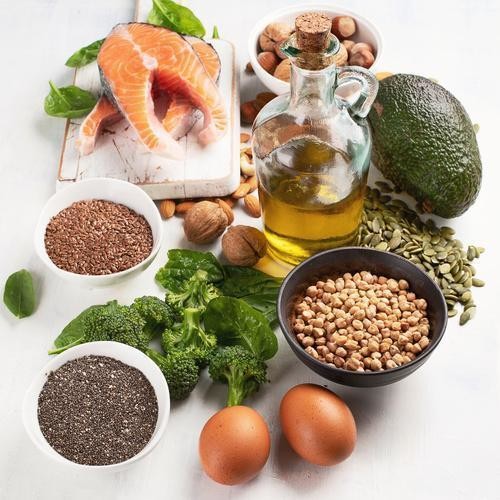
How to stay fit and healthy
Quality of life and performance are closely related. If everyday demands drain so much of our energy that beautiful activities are no longer fun, we should urgently change something. How can we succeed?
Many people think that they need to "function" even faster and more effectively to optimize performance. However, we have a different understanding of this. For us, being efficient means using one's own energy resources in a healthy way for daily tasks. If, on the other hand, you pressure yourself and ignore your needs, this will only lead to negative stress, excessive demands and in the worst case to burnout. Healthy performance can be achieved - above all - through beautiful things: relaxation, exercise and a healthy diet.

Tips for more energy in day-to-day life
Create islands of peace - sometimes just five minutes of conscious unclasping are enough to regain consciousness in a hectic everyday life. Build these oases firmly into the structure of your lifestyle, e.g., as meditation or journeys of the mind, as a short nap or walk in nature. If you have an hour or more time, specific methods for stress management such as progressive muscle relaxation or autogenic training are useful.
Exercise in the fresh air - with the combination of exercise and oxygen you can recharge. Easy endurance exercises are ideal. A daily walk in the fresh air provides a balance to work and mental stress. Notice how your mood is improving? Notice that the more regularly you exercise outside, the less exhausted you feel. Suggestion, enjoy a walk in the morning and start the day immediately in a cheerful mood!
Eat a healthy diet - the right diet is the basis for health and performance, because it directly affects our brain, our ability to think and our ability to concentrate. Maintaining moderation can particularly promote mental fitness. In the Japanese region of Okinawa, for example, there are more centenarians than anywhere else in the world. In addition to their healthy diet, they have a golden rule of nutrition: "Eat only so much that your stomach is filled to 80 percent! The conclusion is, if you eat consciously and don't constantly overeat - life will reward you with more vitality and vigor up to an advanced age.
Your personal way to a work-life balance
Leading a life in balance ensures satisfaction in both professional and private life. The implementation is not that difficult! We support you with tips and practical exercises. Give it a try.
We are more than just our work. Yet our job provides us with a lot. Some people realize talents and visions through their job. Many draw self-worth from their work. And of course, the job secures our existence, because we earn the money for living.
But, making work the absolute center of attention can lead into the stress and burnout trap. That's why a healthy balance between work and private life is the ultimate art - even if your employer does not offer benefits such as flexible working time models, childcare and health-oriented programs.

How does it work? Here are some tips:
Step by step - take control of your work-life balance
- Review your career goals: What motivates you and what are your goals? More professional success, social recognition, a higher income? Or more independence and satisfaction? Answer these questions honestly, then you can focus on the right priorities.
- Take a close look at your current job: Is your job still the right one? Has it never been or have conditions changed? Do you enjoy your work? It is not necessary to satisfy your own needs exclusively in your private life. You should enjoy work! Dragging yourself to the office every morning with an inner resistance is pure stress in the long run. Is there perhaps a further training opportunity for you or a job that suits you better?
- Pause and recognize your own achievements - you have completed a task and reached an intermediate goal? Then it is important to acknowledge your own performance. Relax and take a deep breath. Think again about the task you have just completed and then say goodbye to it with a long exhalation. Now you are free to turn to the next task.
- Go home early on a normal working day. Nothing gives you more peace of mind than spending the evening with family or friends or doing other things that give you pleasure.
- Take proper care of yourself at work - a small, deliberate pause, deep breathing at the open window will do wonders! A short walk at lunchtime will improve yoyr focus. To gain distance at work, stretching exercises are a good way to get some space - these also work well while sitting down.
- Enjoy your lunch, preferably without stress and hectic. For example, avoid eating quickly at your desk in front of the computer screen.
- Staying relaxed and calm as stress and overload situations are part of everyday working life. But you can defuse them by saying to yourself, "Afterwards I will take care of a balance! It is important that you implement this plan in a timely manner.
Practical exercises for more equilibrium
You can achieve work-life balance in small steps and with healthy routines. Physical exercises are a great way to bring you back into balance - in the middle of everyday life. Here are our exercises for inner and outer balance.
In an outwardly balanced, straightened body, your inner balance is more easily restored. Even with the simplest exercises you can achieve a better sense of balance. The best thing about it, these exercises work without aids and almost everywhere.

Easy one leg stand
The perfect exercise for anywhere when you wait in line! Use the waiting time for a short exercise. Repeat the exercise as often as you like.
- Stand up straight and fix your eyes on a point a few yards away.
- Both feet are slightly hip-wide apart and have firm contact with the ground.
- Shift your weight to your right leg and tense the muscles in your buttocks and thighs slightly.
- Lift the left leg slightly. Hold this position for a while.
- Do the exercise with your other leg - and repet as often as you wish.
One leg stand for advanced
This exercise makes you flexible and relaxed, promotes good posture and concentration. It is best to practice in the morning and / or evening.
- Stand up straight.
- Place the toes and ball of your left foot on the instep of your right foot. The heel of your left foot points upwards. Do not support the heel against the shin.
- Bring your fingertips together in front of your chest or place your hands together as if in prayer.
- Now slowly stretch your arms upwards in front of your face. Place your wrists on your head first and then move your arms further into the vertical. Pull them up as high as you can without pain.
- In this position, try to keep your balance for about one minute. Breathe in and out deeply and calmly through your nose
- When you feel secure, close your eyes briefly.
- Repeat this exercise with your other leg and do three repetitions each. In between, relax and release both legs.
Vocation instead of burnout - how does it work?
Stress, over-straining or under-straining - many people experience their work as unsatisfactory. Of course, there is no such thing as the perfect job. But when we feel increasingly burnt out and stressed, it is time for the decisive question: Do we (still) have the right job?
Have you experienced this? We do certain things that fill us up inside. We are motivated because we are doing something valuable. We are good at it, and it gives us a sense of satisfaction. And the amazing thing is, we feel no effort. On the contrary, we develop the strongest inner forces, creativity and commitment. That is our vocation. On the other hand, we feel completely different when we don't really feel like doing a certain task. Even if we push ourselves with sentences like "Pull yourself together" or "Everyone has to get through this" - in the end we feel exhausted and empty.

Express talents
As people with thoughts and senses, we want to unfold and be creative. Ideally, we can use our personality with all our talents and abilities in our career. But for many this is out of reach. Restrictions in other areas of life could also be associated with it. For example, if you decide to become a self-employed professional, you may have to accept financial instability. If you decide to take your dream job abroad, you will have to leave your familiar environment behind.

What is good for you?
The good news is that you don't have to turn your life upside down to approach the sensation of a "vocation".
- A meaningful task does not always have to be something big, world-changing. Many people draw great satisfaction from inspiring activities. When we give our creative energies room - whether at work or as a hobby - we recharge our batteries.
- Sometimes it is enough if we can use our talent in one aspect of our job. But maybe there is an opportunity to expand this area of work? How could you develop in your workplace in a way where your talents are needed more? Is there any further training or education that could help you achieve this?
- Taking breaks and time out stimulates creativity. No wonder that good ideas are often born on walks or in the shower and not at work. Because working hard tends to lead to tunnel vision and the need for control. Free up your mind and take deep breaths several times a day. Our balancing exercises, for example, will help you to become grounded.
- Integrate sensuality into your everyday life. Healthy, meals prepared with love, for example, can work wonders. Which flavors do you like? What is good for you? What are new culinary discoveries?


